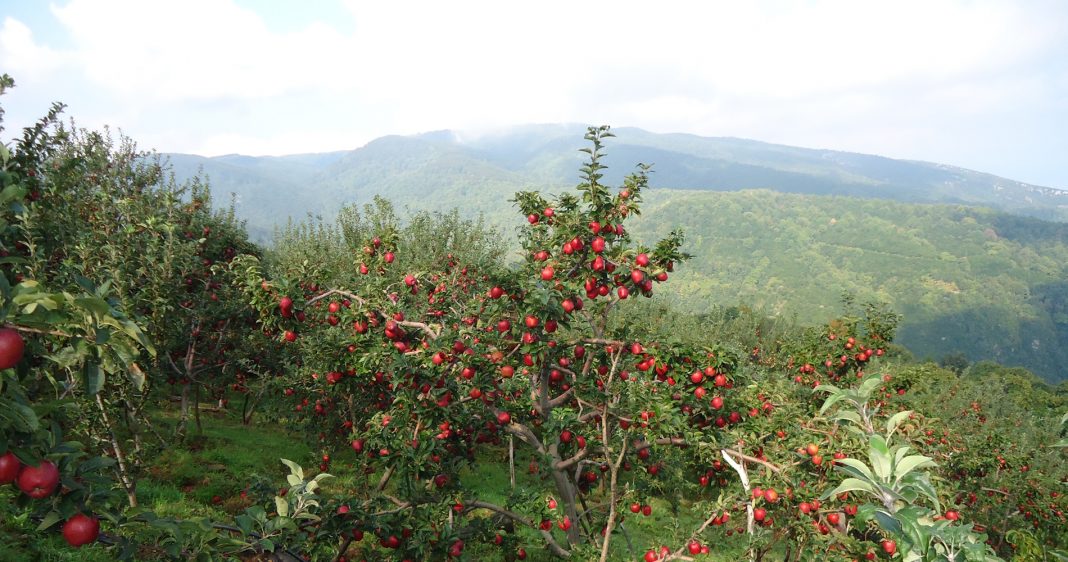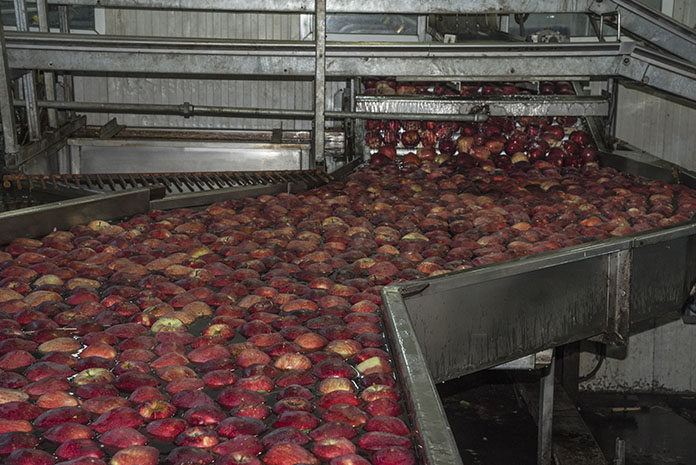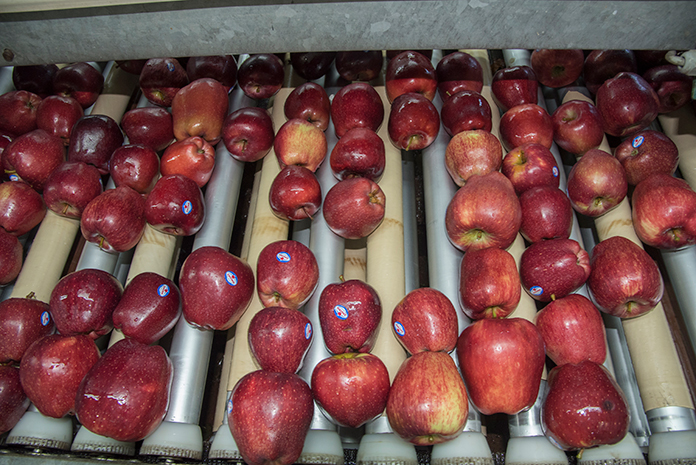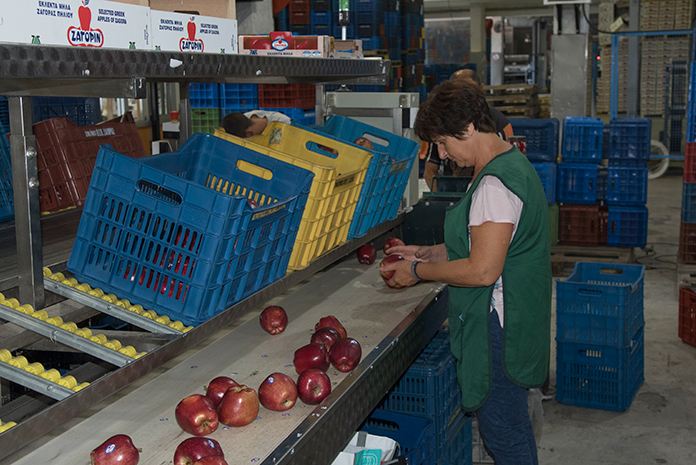A new unit increasing production capacity by 40%, a €4.7 million investment plan, and some of the juiciest and most delicious apples in the world. The Agricultural Cooperative of Zagora-Pilio has a lot to be optimistic about in 2020.
Story: Vana Antonopoulou
Most apples sold in Greece (and abroad) are invariably imported mainly from the region of Zagora in Mount Pelion in Central Greece, one of the most beautiful forested areas in the country. Pelion and Zagora in particular is famous for two apple varieties: PDO Mila Zagoras Piliou and PDO Firiki Piliou, both of them registered as Protected Designations of Origin products, and both marketed by the Agricultural Cooperative of Zagora-Pilio. Since 1985, both varieties (and some four other) have been trademarked under the “Zagorin” name. Nowadays, the Agricultural Cooperative of Zagora-Pilio collects, processes and moves (in Greece as well as internationally) approximately 10,000-15,000 tons of apples a year, while exports account for 30 percent of total production!
A significant investment that will boost production
According to Mr Dionyssis Valassas, General Manager of the Agricultural Cooperative of Zagora-Pilio, construction of a new refrigerating unit for the Cooperative will begin in the end of the summer, after an €4.7 million investment was approved. “We are currently in the licensing phase to begin the expansion of the plant,” he explains.
This particular investment, which is expected to start operating in 2021, is expected to increase the Coop’s production by almost 40%, as the capacity of the company’s facilities will reach 14 million kg of apples a year. In addition, the unit will have an electronic fruit sorting system, as well as a modern water recycling system used to wash fruits at the packing center (this project is in cooperation with the Benaki Phytopathological Institute)
New export destinations & branded products in the works
Regarding exports, the Cooperative or Zagorin, in short, opened the United Arab Emirates market last year, delivering fresh produce. According to Mr Valassas, though, production is down this year so there is not enough apples to expand exports at this point. For the time being, attempts are being made to export molasses from the PDO Firiki Piliou apple variety and the cooperative is in discussions to market it to the United Kingdom and Finland.
Apple molasses is a product that, according to the Zagorin administration, is not very well know, even to apple producing countries –although, admittedly, it is quite delicious
“Our medium-term plans are to make additional branded products over a five-year period,” states Mr Valassas, while adding that there is a plan to also produce apple juice, dried apple chips and apple cider.
Apple varieties with international prospects
- PDO Mila Zagoras Piliou cultivation takes place within the eastern side of mount Pelion, in the municipal areas of Zagora, Makryrrachi and Pourio, on terraced grounds (the cultivation area has a marked inclination and an altitude that varies between 300-700 m.). The history of the variety is linked to the systematic cultivation of the apple orchards that began approximately in the mid 1960s. The particular climatic characteristics of the production area along with the traditional cultivation techniques applied contribute to the production of first-rate quality apples. Production and cultivation fall under the strict control of the local cooperative. Manual pruning extends from the month of November through to February and follows the so-called “pebble-shaped” branch distribution scheme, which favors good ventilation of the tree and excellent sun exposure of the fruit. The fruit of this particular variety have a characteristic oblong shape with the bottom end featuring five lobes, and an intense red color. The pulp is yellowish-white, the flavor is especially juicy. They have a smooth and polished peel.
- PDO Firiki Piliou are also cultivated within the administrative boundaries of the municipalities of Portaria, Zagora, Agria, Artemida, Mouresi, Milies, and Afetes, and in the community of Makrinitsa at a fairly high altitude (300-900 m.) and although the soil contains schist—which usually means land of poor quality—the proximity of chestnut, beech and strawberry tree woods helps create fertile soil. The soil is also well drained because the terrain is sloping, which is why the Firiki are grown mainly on terraces; this makes the use of tractors and other agricultural machinery impossible, so all the work is done by hand. The trees produce a crop every two years and start bearing fruit six years after planting. PDO Firiki Piliou is smaller and more elongated in respect to other varieties and has crisper and firmer flesh. The skin is smooth and waxy and it is a more vivid red because it is better exposed to the sun. It has a juicy consistency and is sweet tasting with a strong fragrance.
Zagorin apples facts and figures
42,000 hectares given over to apple growing
15,000 tons of apples marketed each year
30% of total apple production is exported
The Agricultural Cooperative of Zagora-Pilio
The Agricultural Cooperative of Zagora-Pilio was the first agricultural cooperation in Europe to obtain a PDO registration for apples (in 1996). It is one of the oldest cooperatives, since it was established in 1916 by 199 people from the region of Zagora, and nowadays owns a state-of-the-art plant where apples are sorted according to their color, size and quality, and are packed or processed and shipped to key markets all across the globe.






















